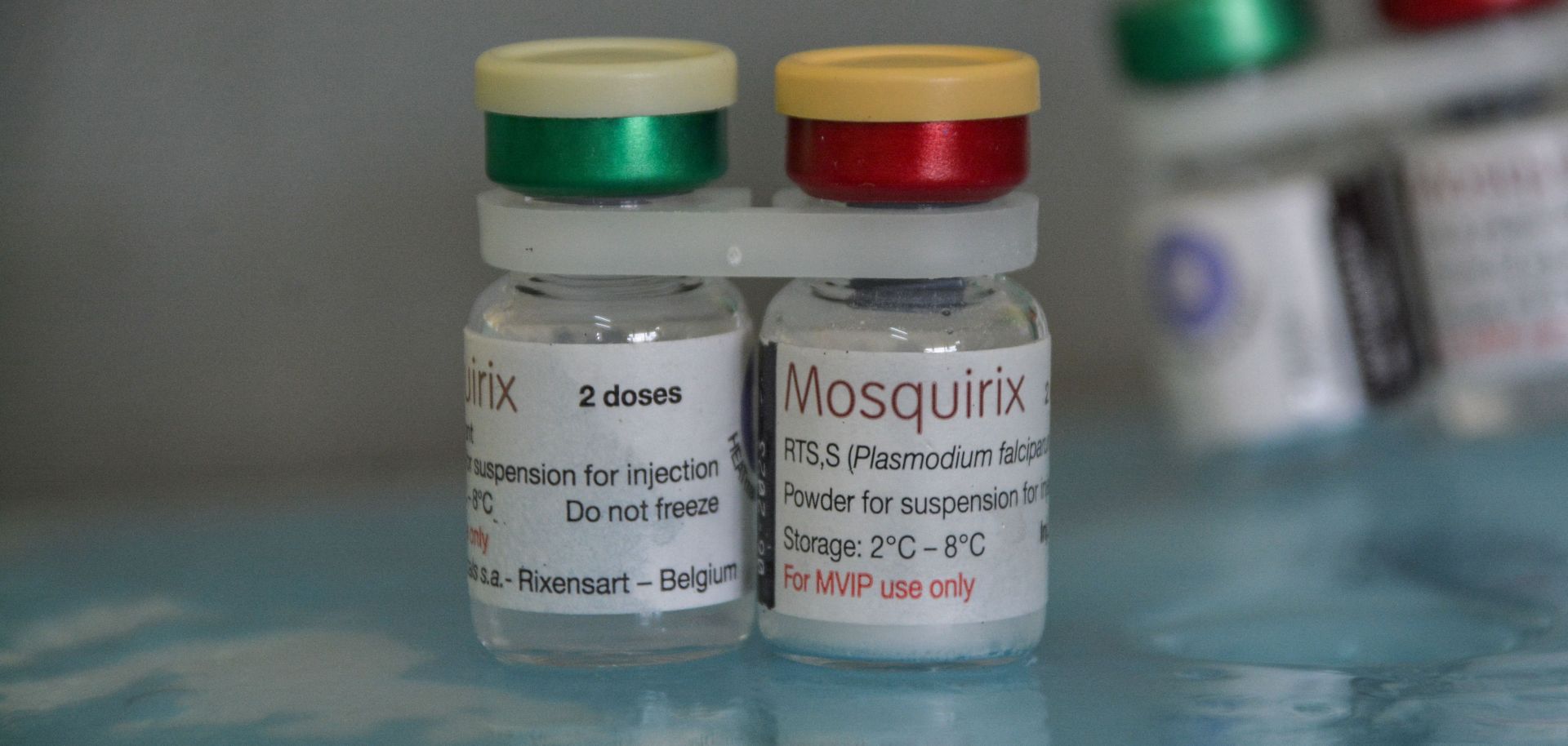The approval of the world’s first malaria vaccine marks a notable step in sub-Saharan Africa’s decades-long fight against the deadly mosquito-borne disease. But the vaccine’s limited efficacy and complicated distribution mean malaria will continue to plague the region’s economic output. On Oct. 6, the World Health Organization (WHO) approved the malaria vaccine developed by the British pharmaceutical company GlaxoSmithKlein (GSK). The vaccine, named Mosquirix, specifically targets the strain of malarial parasite common in sub-Saharan Africa, where the disease annually kills about 400,000 people -- most of whom are children. But while it’s the first to be authorized, GSK’s malaria vaccine has its limitations: Mosquirix requires administering four doses over the first two years of a child’s life, only to then provide a 30% chance of preventing infection -- a far cry from the WHO’s goal of 75% efficacy for a malaria vaccine....

